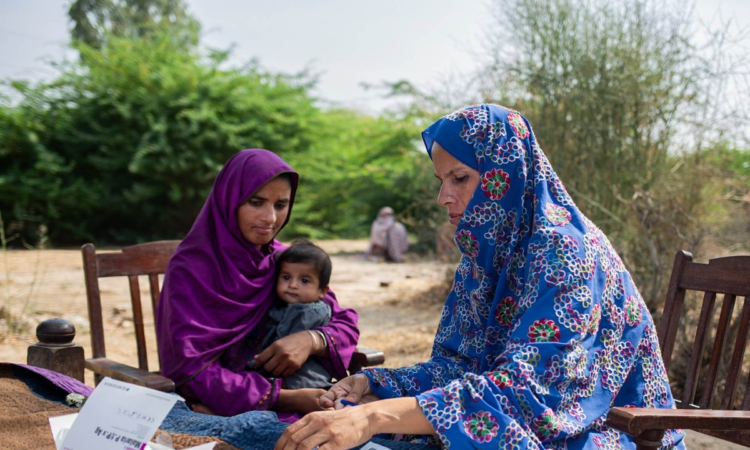WHO calls for action to uphold right to health amidst inaction, injustice and crises – World Health Organization (WHO)

To mark World Health Day (7 April), the World Health Organization (WHO) is running the “My health, my right” campaign to champion the right to health of everyone, everywhere.
The campaign advocates for ensuring universal access to quality health services, education, and information, as well as safe drinking water, clean air, good nutrition, quality housing, decent working and environmental conditions, and freedom from discrimination.
All around the world, the core challenges consistently compromising the right to health are political inaction coupled with a lack of accountability and funding, compounded by intolerance, discrimination and stigma. Populations facing marginalization or vulnerability suffer the most, such as people who live in poverty, are displaced, are older or live with disabilities.
While inaction and injustice are the major drivers of the global failure to deliver on the right to health, current crises are leading to especially egregious violations of this right. Conflicts are leaving trails of devastation, mental and physical distress, and death.
The burning of fossil fuels is simultaneously driving the climate crisis and violating our right to breathe clean air. The climate crisis is in turn causing extreme weather events that threaten health and well-being across the planet and strain access to services to meet basic needs.
Everyone deserves access to quality, timely and appropriate health services, without being subjected to discrimination or financial hardship. Yet, in 2021, 4.5 billion people, more than half of the world’s population, were not covered by essential health services, leaving them vulnerable to diseases and disasters. Even those who do access care often suffer economically for it, with about 2 billion people facing financial hardship due to health costs, a situation that has been worsening for two decades.
To expand coverage, an additional US$ 200–328 billion a year is needed globally to scale up primary health care in low- and middle-income countries (i.e. 3.3% of national forecast GDP). Progress has shown to be possible where there is political will. Since 2000, 42 countries, representing all regions and income levels, succeeded in improving both health service coverage and protection against catastrophic health spending.
“Realizing the right to health requires governments to pass and implement laws, invest, address discrimination and be held accountable by their populations,” said WHO Director-General Dr Tedros Adhanom Ghebreyesus. “WHO is working with governments, partners and communities to ensure the highest attainable standard of health, as a fundamental right for all people, everywhere.”
The right to health is enshrined within the WHO Constitution, and at least 140 countries recognize the right to health in their national constitutions. But recognition alone is not enough, which is why WHO supports countries to legislate the right to health across sectors and integrate human rights into health policies and programmes. The aim of this support is to make health services available, accessible and responsive to the needs of the populations they serve and to increase community participation in health decision-making.
On this World Health Day and beyond, WHO is calling for governments to make meaningful investments to scale up primary health care; to ensure transparency and accountability; and to meaningfully involve individuals and communities in decision-making around health. Recognizing the interdependence between the right to health and other fundamental rights, the campaign includes calls to action on finance, agriculture, environment, justice, transport, labour and social affairs.
Individuals, communities and civil society have long defended their right to health, improving access to health care services by breaking down barriers and advocating for equity. WHO urges the public to know, protect and promote their health rights, including those related to safe and quality care, zero discrimination, privacy and confidentiality, information, bodily autonomy, and decision-making.
Media Contacts
WHO Media Team
World Health Organization
Related
Fact sheets
Facts in pictures
Events







